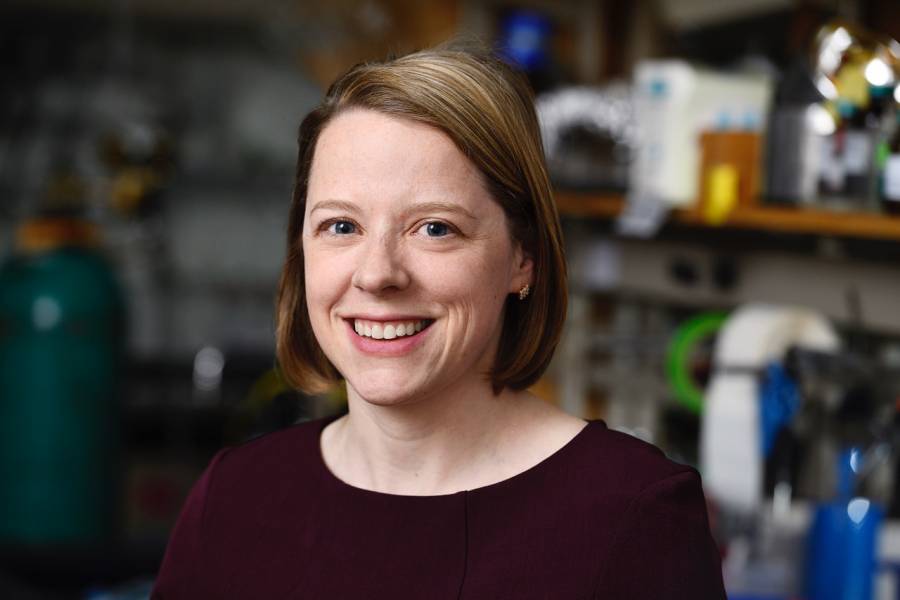- Name
- Rachel Wallach
- rwallach@jhu.edu
- Office phone
- 410-350-9698
- Cell phone
- 410-516-7621
A recently launched National Science Foundation-funded research center that includes Johns Hopkins University chemist Rebekka Klausen is exploring ways to make longer-lived, less wasteful materials like automobile tires and biomedical implants.
"We are grateful to the National Science Foundation for supporting this center, which is a collaborative and synergistic effort to address critical societal issues," says Klausen, associate professor in the [Department of Chemistry] in JHU's Krieger School of Arts and Sciences.
The Center for the Chemistry of Molecularly Optimized Networks, or MONET, is one of several Centers for Chemical Innovation, a signature effort of the National Science Foundation's Division of Chemistry. The five-year, $20 million centers carry high expectations for innovative science and outreach, says Klausen, who serves as a senior investigator in the Duke University-based center.
Experts in polymer chemistry, synthetic methods, photochemistry, multi-scale modeling, and bioconjugation, the 15 MONET researchers will explore and optimize the chemical structure and physical properties of individual molecules in a polymer network. Klausen's focus is on sustainability, aiming to increasing the lifetime of synthetic rubbers and designing plastics that can decompose upon a chemical trigger.
"The scientifically diverse MONET team is well suited not only to address current challenges in polymer applications and manufacturing, but also to identify and respond to emerging challenges," she says.
MONET's outreach activities include efforts to broaden participation and improve student training in the sciences and to advance the public appreciation and commercial translation of its findings. A member of the executive leadership team, Klausen serves as the center's vice director of informal science communication, overseeing much of MONET's outreach to non-scientists, including its contributions to a concert series titled "Art of Polymers."
In addition to Hopkins and Duke, center researchers hail from Columbia University, MIT, Northwestern, University of California-San Diego, University of Illinois Urbana-Champaign, University of Michigan, and University of Washington.
"The scientific path being charted by the MONET team will further national priorities in Advanced Manufacturing, Sustainability and Artificial Intelligence," said NSF Division Director David Berkowitz.
Posted in Science+Technology
Tagged chemistry, materials science, sustainability, rebekka klausen








